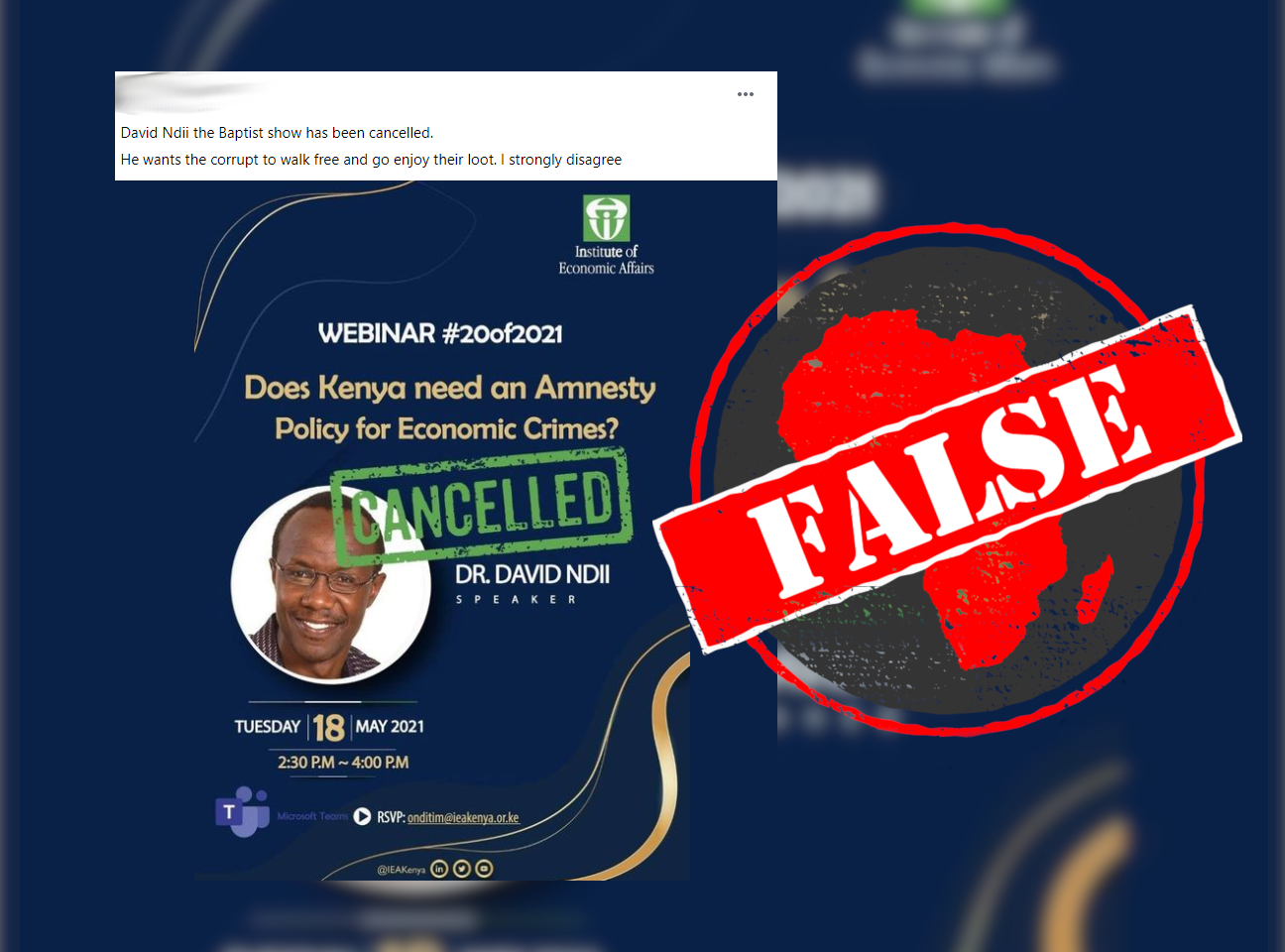On 10 May 2021 Kenya’s Institute of Economic Affairs (IEA), a public policy think tank, invited its Facebook and Twitter followers to a webinar on amnesty for corruption. But a day later, a Facebook user claimed the event had been cancelled.
“Does Kenya need an Amnesty Policy for Economic Crimes?” the webinar invitation reads. It gives the date as 18 May and the speaker as Dr David Ndii, an economist and public intellectual in Kenya.
But on 11 May the invitation was reposted on a public Facebook group with more than 36,000 members – stamped “CANCELLED”.
The user posting it said: “David Ndii the Baptist show has been cancelled. He wants the corrupt to walk free and go enjoy their loot. I strongly disagree.”
Ndii’s call for amnesty for past corruption has been dismissed as “impractical” and a ruse by the corrupt to “keep the loot”.
But was the IEA’s webinar on the issue cancelled? We checked.

Video of webinar
On 18 May, the IEA posted: “HAPPENING TODAY: What questions do you have about the amnesty policy for Kenya's economic crimes? Our speaker ~ the delectable & influential Dr David Ndii will be on hand to answer your questions starting at 2:30 pm during the session.”
The day after, the institute posted a video of the full webinar on its YouTube channel, and a link to the video on Facebook.
The webinar was not cancelled.
Republish our content for free
For publishers: what to do if your post is rated false
A fact-checker has rated your Facebook or Instagram post as “false”, “altered”, “partly false” or “missing context”. This could have serious consequences. What do you do?
Click on our guide for the steps you should follow.
Publishers guideAfrica Check teams up with Facebook
Africa Check is a partner in Meta's third-party fact-checking programme to help stop the spread of false information on social media.
The content we rate as “false” will be downgraded on Facebook and Instagram. This means fewer people will see it.
You can also help identify false information on Facebook. This guide explains how.


Add new comment